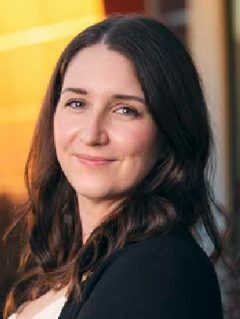Operation Backlog
Dr. Kristine Smith reflects on the pandemic’s impact on surgeons.
By Ashley Smith

When patients meet with Dr. Kristine Smith these days, it’s hard to picture her as a real person. Following infection control recommendations, she is behind a personal protective equipment wall: N95 mask, protective glasses, and rubber gloves – in some cases, even a gown.
As an ENT surgeon specializing in sinus surgeries, Dr. Smith balances her time between a team at St. Boniface Hospital and a practice she shares with eight surgeons at the Health Sciences Centre. These days, her specialty is exceptionally high risk.
When she meets patients for the first time, she needs to build trust with the patient. They need to know that even though surgeries may be dangerous, it will change their life.
“With all the PPE, it’s strange for both of us,” Dr. Smith says. “My first-time patients have never seen my face.” It’s challenging to develop doctor-patient trust.
“It takes longer for people to feel safe. They need more conversation to get to know me. They may see a smile in my eyes, but they can’t see it on my face.”
Underneath the PPE, Dr. Smith is going through the pandemic just like anyone else. She has Zoom calls with her family, she learned to bake bread, she walks her dog to de-stress, perhaps too much if you ask Yoho, an Australian Shepherd. She is also trying to keep safe and keep the lights on in her practice.
In mid-March, Shared Health Manitoba deemed elective surgeries too risky. Operating Rooms were closed. However, when surgeries resumed in May, she and her colleagues faced a daunting ten-week backlog. Now operating at a reduced capacity of four patients an hour, the team feels like they are barely making a dent as they try to catch up.
With the rush of patients and surgeries, there have been times when the team has had to prioritize enhanced PPE for higher-risk patients and operations. Dr. Smith and her colleagues recently learned the hard reality of these tough choices when a colleague’s intraoperative exposure to a COVID- positive patient meant the surgeon would have to isolate and self-monitor for two weeks.

A surgeon’s isolation has massive repercussions.
“You see the strain on doctors as they worry about their patients as well as their obligations to support their staff and keep the lights on. I have colleagues that have kids. When their kids get sick, they have to cancel surgeries and in-person clinic. They have to stay home and cancel their child care – which means they can’t focus on their patients.”
“As our community spread numbers continue to go up, it’s going to happen more often.”
That is a major concern when one considers there were 7,000 surgeries canceled in Manitoba during the first wave of the pandemic, with more being postponed now during the second wave. With unexpected isolations, additional time to take extra precautions for each procedure, and limited OR access, catching up on that backlog is difficult.
Around her, Dr. Smith can see this pandemic requires levels of commitment and resilience most people didn’t realize they had. “Patients have been so understanding. The surgeons in this community would not have been able to do what they do without their nursing staff, support staff, and clerks, without whom everything would have just fallen apart.”
For now, Dr. Smith forges on, PPE and all. She’s building and maintaining that vital trust with her patients so that they can focus on their health, and she can continue to provide care.